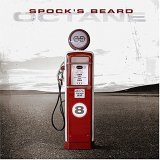Blogging is like Punk Rock?
Monday, February 28th, 2005A post on Harry’s Place compares the world of Blogging with the world of punk rock in the 70s.
In the late Seventies fanzines printed diagrams showing readers how to hold down three chords followed by an exhortation to go out and form a new band. The equivalent now is established bloggers pointing commenters in the direction of the Blogger Template and challenging them to do better if they don’t like what they see.
The growing number and diversity of blogs today does remind me of the inky, enthusiastically scribbled fanzines sold in record shops 25 years ago. That same DIY spirit mutated into an explosion of independent record labels which provided a way for new bands to bypass the approval of satin-bomber jacketed A & R men who had, until then, been the gatekeepers to record pressing plants.
Commenter Effra , though, begs to differ:
Yes, I too have often been struck by the similarity between blogs and punk music:
(1) Almost no girls or non-whites are fans. The performers aren’t very gifted and the music is technically backward (blog design versus MSM).
(2) It isn’t genuinely popular. (A recent chart of Britain’s Top 100 selling singles found not one punk track among them- not even ‘Anarchy in the UK’.
(3) It appeals chiefly to middle class teenage boys who fancy a bit of prolier-than-thou, licit bedroom rebellion: rude words (gobbing in print), vandalism and body-surfing (DOS attacks, spamming etc).
(4) For years after the brief craze has fizzled out, those same boys- now thick-waisted middle aged meejah nostalgics- fondly hark back to their little bit of revolution, and go on churning out books and documentaries about it as if it had been a major social trend.
(5) Disco and glam rock- the real mass tastes in music in the 1970s- get stigmatised by these aficionados in the same manner as the dreaded Mainstream Media are put down by bloggers.
Punk was for the Nathan Barleys of 1975, and Joe Strummer was a public school toff.
I find myself nodding in agreement with ‘effra’. I’ve always thought the influence of punk rock has been overstated, both musically and culturally. All it really achieved was to get up the noses of the cultural elites and frighten a few over-excitable Daily Mail readers. What influence there was on music was as much negative as positive. Just like too many bloggers it was deeply reactionary; a puritanical insistence that you weren’t allowed to use more than three chords, and any displays of instrumental ability were self-indulgent and decadent.
Punk burned itself out within the space of a couple of years; by the mid 80s corporate rock was back with a vengeance, only far blander and less ambitious than anything from the wrongly-maligned early 70s. I suspect the real reason punk is overstated is simple demographics; the height of punk corresponded with peak of the British baby boom, a decade or so later than the American one. Just like America’s boomers, this generation thinks that history revolves around them.
The ultimate irony is that today, it’s the prog-rockers who are the do-it-yourself artists, releasing self-financed records on obscure independent labels. And the music being release by major record companies is a sort of watered-down sanitised version of punk.
Time will tell if blogging will go the same way. Will the talented writers in the blog world end up working for the MSM they once despised? Will the effect of blogging be to make the MSM blander, afraid to have a strong opinion on anything lest they suffer the fate of Dan Rather?

